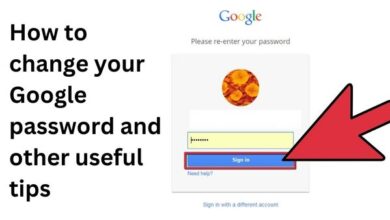How Should You Optimize for Branded Keywords?

How Should You Optimize for Branded Keywords? Should you target keywords and phrases that are intimately associated with and include your brand names? Keywords are significant, as anybody who is familiar with search engine optimization (SEO) will attest. Your chances of ranking for search queries including that keyword or phrase will be increased by optimizing for a specific keyword or keyword phrase. Your business may optimise web pages for search terms like “hotdog restaurant near me” or “bikes for sale.”
What about keywords with a brand? Should you target keywords and phrases that are intimately associated with and include your brand names?
What are branded keywords?
Branded keywords are simply those that are connected to your brand. Branded keywords may include “Waffle Place,” “MegaWaff,” and “Waffle Place MegaWaff,” along with related terms, if your business is named “Waffle Place” and your trademark waffle is called “The MegaWaff.” Additionally, customized keyword phrases may combine your company name with other details or components of relevant searches, such as “Waffle Place hours” or “Waffle Place submit resume.”
Why do branded keywords matter?
Your brand represents the identity of your business, making it one of the most crucial marketing jigsaw pieces. You are aware of the importance of treating your brand with respect. This is another another instance in which you should carefully manage your brand name and wisely use it to your marketing and advertising objectives.
The majority of people use general terms when considering organic searches that can direct someone to their business. Branded keyword searches, however, are also common. Consider how frequently you have looked for a business that someone else has suggested to you or a product that you have just learned about in your own life.
It’s important to capitalize on this traffic. You must make sure that visitors searching for your branded phrases will see your website as authoritative, prominent, and easily navigable.
How to optimize for branded keywords
The good news is this. It’s likely that you won’t need to do much. Most of the work is probably already done for you if you spend time and effort creating a website that promotes your brand and appeals to your target market. To achieve the best outcomes, you’ll need to employ a few important methods and techniques.
Put your brand name all across your website
Make sure to use your brand name and, if appropriate, the brand names of all of your products and services, across the whole website. Include it in the alt tags of your photos as well as the title tags, header tags, and body content. Your brand names should be noticeable, but they don’t have to be everywhere all the time.
Create dedicated pages
If you uncovered any brand keywords or brand keyword phrases from Google Autocomplete, you might want to create a separate page for each of them (or other keyword research). In your SEO effort, it pays to create a separate target page for each target term.
Look for common associations
For the majority of us, Google’s Autocomplete feature is almost indispensable. Google will try to complete any question you start typing based on the most frequent searches made by people just like you. Try entering a few brand-related questions to see what Google suggests you add to them.
This can help you comprehend some of the most popular queries consumers make in relation to your brand and provide guidance on how to improve your optimization for branded keywords.
Add pictures and videos
Google search results are no longer limited to web pages. They also include multimedia material like photographs, movies, and other types. Make sure you have a tonne of multimedia information accessible to searchers if you want to maintain your dominance of results relating to your brand name.
Include Watch out for competitors
Because it’s totally feasible to rank for a competitor’s brand name, you can already be facing competition from other brands for the top spots for your own brand keywords. To find out if other businesses are attempting to optimise for your own branded keyword words, do searches for those terms.
They could purposefully try to rank for keyword phrases that portray you negatively, such as “Waffle Place food sickness” or “Waffle Place awful,” or they might have material that compares your brand to theirs and explains why their brand is superior. If you see a rival using this strategy, launch a counterattack by optimizing for the keywords they used; since your website is designed to promote this brand, you’ll have a significant competitive edge.
You may also go on the attack and rank for the branded keywords of competing companies.
- How to Create Google ads Account in 2022
- How To Get Google Keyword Planner Search Volume without Adding Credit Card?
- How To Get 80K Free Instagram Followers?
Consider satellite sites
Consider creating satellite sites and independent landing pages with other domains to assist your primary site if your branded keyword approach requires further support.
About PPC ads
Another significant point here. Additionally, in the realm of pay-per-click (PPC) advertisements, branded keywords are quite crucial. It may seem superfluous or unnecessary to pay for advertising related to keyword searches for your brand given that you may already be at the top of the organic ranking list.
This, however, can act as a potent defensive strategy, stopping one of your rivals from buying advertisements as a quick method to outperform your visibility. Once more, you may go on the attack by purchasing PPC advertisements for branded keywords connected to your rivals.
Branded keywords might be a very effective addition to your plan. These strategies will help you protect against tough competition and more successfully reach your target audience, even if your website is already effortlessly ranking for its own brand name.






